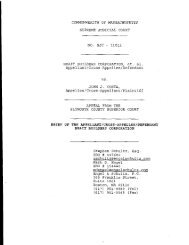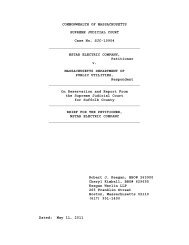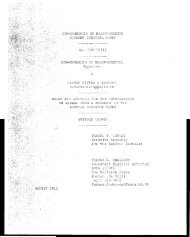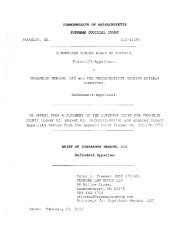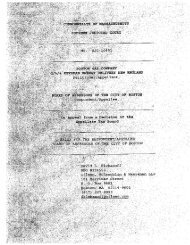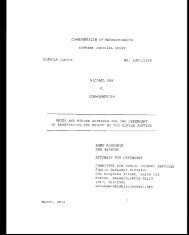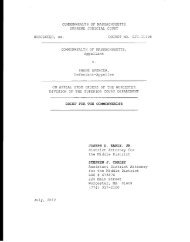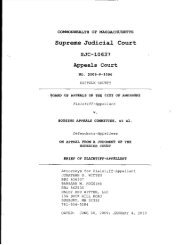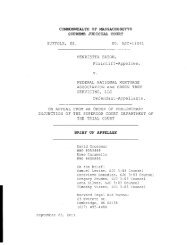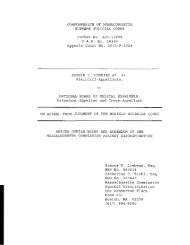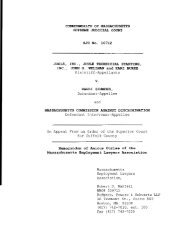463 Mass. 353 - Appellee Commonwealth Brief - Mass Cases
463 Mass. 353 - Appellee Commonwealth Brief - Mass Cases
463 Mass. 353 - Appellee Commonwealth Brief - Mass Cases
Create successful ePaper yourself
Turn your PDF publications into a flip-book with our unique Google optimized e-Paper software.
medical examiner, the "premise of the defense" factor<br />
was crucial because the cause of death was "very much a<br />
disputed issue") with <strong>Commonwealth</strong> v. Diaz, 453 <strong>Mass</strong>.<br />
266, 274 (2009) (inadmissible post-Miranda denial of<br />
accusation was harmless where "the premise of the<br />
defense was misidentification.").<br />
To conclude, this Honorable Court has consistently<br />
taught that appellate courts should employ all of the<br />
Degraca/Mahdi factors in determining harmless error.<br />
This approach to constitutional harmless error analysis<br />
has been oft-tested and not found wanting. The multi<br />
factor approach, by its nature, is adaptable to myriad<br />
factual circumstances in such a way as to promote sound<br />
results in particular cases. There is no reason to<br />
stray from our well-established legal standards in the<br />
context of reviewing Melendez-Diaz errors. The Chapman<br />
standard calls for a reviewing Court to examine "the<br />
totality of the record before us, weighing the properly<br />
admitted and the improperly admitted evidence<br />
together," and in light of the entire record to<br />
determine whether "we are satisfied beyond a reasonable<br />
doubt that the tainted evidence did not have an effect<br />
on the jury and did not contribute to the jury's<br />
verdicts." Tyree, 455 <strong>Mass</strong>. at 701. The Mahdi/Degraca<br />
27



